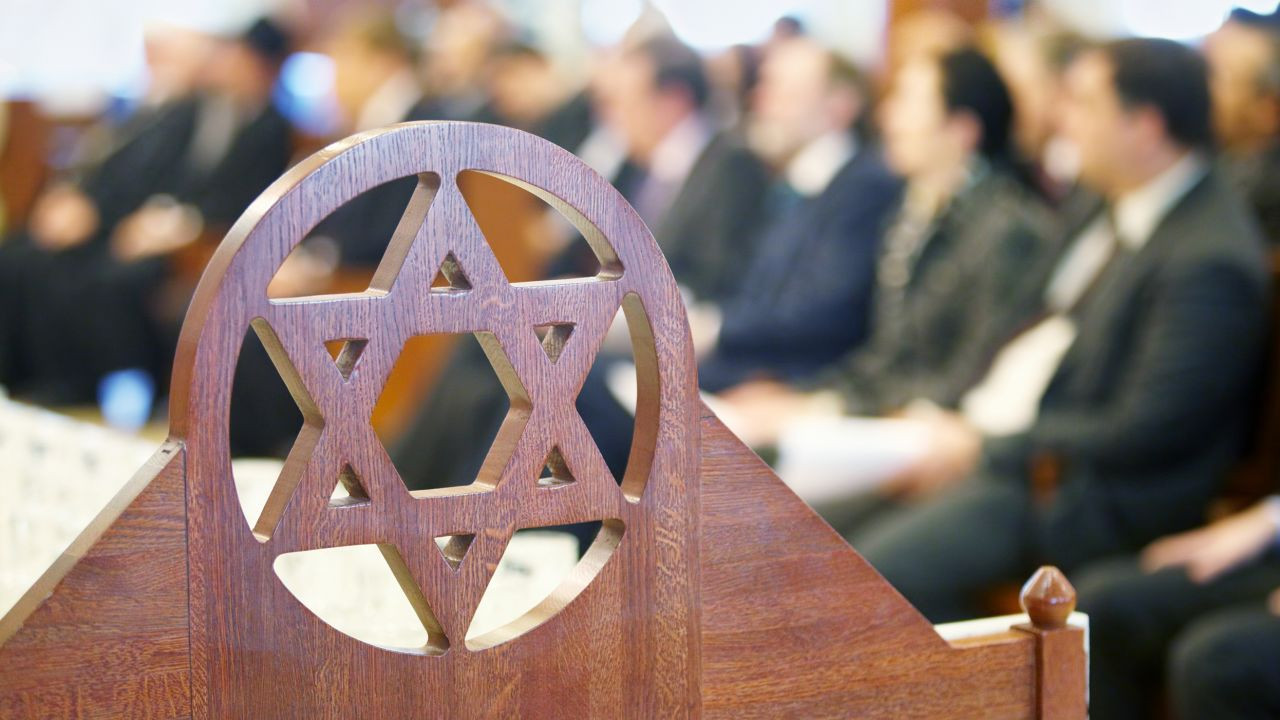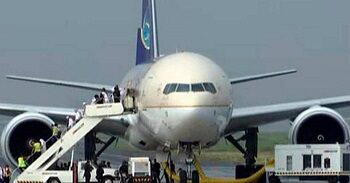I knew that as soon as we came home to Israel, I’d ask myself why we’d been so eager to get back. I’d disconnected for a few days in New York with my family, even stopped wearing the hostage necklace I wore every day, and I knew it would be hard to return.
What I didn’t know was that the day we got back I’d hear that the bodies of six young hostages had been found, shot by Hamas shortly before the Israel Defense Force (IDF) got to them.
In the weeks following Oct. 7, I couldn’t hear anything about the atrocities without breaking down. I was a new mother, only beginning to understand my role protecting the world’s most precious person, and it all felt too raw, too horrifying, too close. I walked out of rooms when people started talking. I watched no TV and avoided unnecessary news and shut down social media. I even averted my eyes in the street when I caught sight of the red letters on the hostage posters, name and age at the top, and “BRING HIM/HER HOME NOW!” printed beneath a smiling photograph.
After some weeks had passed, and the radio started playing regular songs and not only sad ones, I let myself look up at one of the posters, into the eyes of a hostage. Alex Lobanov. He wore an apron and stood next to a lemonade dispenser and smiled back at me. The simplicity of the scene, contrasted with where I knew he was now, twisted my stomach. I thought of his mother.
The Faces of the Lost
At an intersection by my house hung a huge poster of Hersh Goldberg-Polin in a floral printed shirt. Having grown up near my office, in the Baka neighborhood of Jerusalem, in an American family like mine, he felt just one degree away from me. Many people I know knew him. Along with thousands of others, I walked with a flag to meet his funeral procession.
I’d held a poster with Carmel Gat’s face on it – smile and curls – at one of the weekly protests for the return of the hostages a few months ago. She reportedly taught meditation and yoga to the other hostages to help them survive. Almog Sarusi was from Ra’anana, where I grew up. His father runs an electric store in my parents’ neighborhood and had a table outside his store with prayer cards and a picture of his son. I’d paused several times at Eden Yerushalmi’s poster and wondered who her friends were. I’d read about Ori Danino, who fled the tragic party on October 7 and then went back to save people.
All dead. Abandoned.
The Return
The night we were supposed to fly home from the States turned out to be the night (or morning, Israel time) of Hezbollah’s planned massive missile attack and Israel’s preemptive strike. At the gate, we received news alerts about the Tel Aviv airport shutting down, power outages up North, and Israel’s Defense Minister and IDF spokesperson warning civilians about the situation. For a few minutes – which coincided with the plane’s boarding – it looked like this might be the beginning of a much bigger war we’ve all been dreading. With little information and no time, my husband and I decided not to board. We didn’t want to take our toddler into a war zone.
Shortly after the plane took off, it became clear that this was not a regional war – just another crazy day in Israel. But now we were stuck. Almost all airlines had stopped flying to Israel, and the remaining flights were fully booked. We spent 15 hours at JFK with a 20-month-old Imri, who shouted “up-up” at every airplane he saw, but we did not go up.
At the end of another futile day at the airport that week, I walked straight up to the pilots. “Please,” I begged them. “Is there anything you can do? I want to get my family home.”
What were we so anxious to get back to? Nothing, really. Work. Daycare. Our own washing machine. Buying overpriced cottage cheese at the minimarket down the road. Being home. We had Central Park, but I missed the little playground by our house where Imri rides his baby bike and eats other kids’ Bamba.
Finally, we made the very expensive decision to buy tickets from a different airline, with a nine-hour layover in Athens, and a 3:30 a.m. arrival in Israel. In the check-in line, an older Israeli couple smiled at Imri and told us their story of getting stuck without a flight. We met them again near the gate, looking for a smoking lounge. As soon as they found it, the woman sent her husband inside and then whispered to me, “He’s driving me crazy. If I don’t get some time away from him, I’m going to get divorced after 42 years.”
That particular blend of humor and honesty, immediate closeness and hot-blooded temper -- I’d never met her, but I knew her.
As the plane neared Ben Gurion Airport, I heard a woman behind me mutter, “Dear, fascist country.” Her words were pained and loving, like a disappointed mother.
The Weight of Home
When we awoke the next morning, the names of the dead hostages they’d found were made public. It was like reading the news in those first few weeks, checking one outlet after the other to make sure I’d gotten it right. The kind of news you can’t get out of bed from. The kind of news that devastates, nauseates, doesn’t leave you. Shock that they’d survived this whole time, and disbelief that they were shot just before we rescued them.
They should have been home. They should have hugged their parents and children and brothers and sisters so long ago. They should have been alive.
Before we left for our trip, I’d started entertaining thoughts of relocation, like many people I know. Our liberal friends, many of whom are parents, are all wondering what we’re still doing here, with one war after the other, Jewish extremism on the rise, an economy that may soon fall apart, and a government seemingly more focused on resettling the Gaza Strip than on saving lives.
“Why are we here?” I asked my husband Yoav on the night of the Iranian missile attack a few months ago. I had actually gone to sleepknowing there would be missiles a few hours later. We woke up at 2 a.m. to go to our neighbors’ bomb shelter, where Imri pet their dog as we waited for the sirens to cease. Then we walked back to our building and put him back to sleep. “How is this a normal place to raise a child?”
At Monday night’s protest, a man held a poster in Hebrew that read, “I no longer recognize my country.” I looked at it for a long time.
Here we are, in the place we were so desperate to come back to – feeling crushed, confused, and hopeless since we landed. Dreading tomorrow’s news.
But also feeling like we’re home.
And so with a tight chest and heavy legs, I drag myself outside with an Israeli flag week after week. To protest, fight, and try to protect everything good that still exists here. And to save the lives we still can.
The Classroom is in Flux
Beyond the horrors of the October 7 attacks, there was something deeper about that day that left its mark on Jews everywhere. As Hamas committed its atrocities, many Jews had a momentary sense of what it feels like to be completely powerless and vulnerable; to be entirely at the whim of those who wish to exterminate us. For a brief moment, we had a taste of what it feels like to live in a world without a Jewish State.
It’s not a familiar feeling. You have to be well over 80-years-old to have any real memory of what life was like for Jews without the State of Israel. Indeed, we have become so used to the country’s existence that as much as the notion of Israel as a safe haven might resonate in some theoretical way, Jews rarely ‘flee’ to it anymore, certainly not from the UK. About two in every thousand British Jews make aliyah every year and that rate has remained steady for decades. Despite concerns about rising antisemitism, we’re not exactly running for the Judean hills.
Instead, we have increasingly come to see Israel as the ‘classroom’ of the Jewish People, a concept first championed by the former Chief Rabbi, Lord Sacks z”l. As he argued thirty years ago, where Israel once saved Jews, now it would save Judaism. He saw it as the place where young people could have a ‘total Jewish experience’ – to learn about their Jewishness, and to bring back their passion to help revive Jewish life in the Diaspora.
Perhaps the greatest educational endeavor to emerge from this concept was ‘Birthright’ – the all-expenses-paid ten-day Israel experience programme for young adults that has now taken over three-quarters of a million Diaspora Jews to Israel in the past 25 years.
The concept of the Israel experience programme goes much further back that that – it actually pre-dates the establishment of the State in 1948. Israel has long been our classroom – indeed, half of all adult British Jews have been on an educational trip there, and quarter has been on more than one. And chief among these is the Israel youth summer tour, which a third of all adult British Jews has now participated in.
Research demonstrates that the summer tour actually has a rather limited long-term impact on our Jewish identities, certainly as a one-off experience. It is only when it is embedded in a wider set of Jewish educational experiences that it seems to become truly effective. It is far more impactful on young people who were involved in a youth movement before their summer tour and continue to be afterwards, than those who simply ‘go on tour’ one summer. Our Jewishness takes time to evolve; there is no single silver bullet.
Still, research also demonstrates that long-term Israel programmes – i.e. those lasting several months at least – are more impactful than any other major Jewish educational experience, including Jewish schooling. Living intensively in a fully Jewish milieu as part of a group for an extended period leaves a lasting impression on who we become. And of course, those participating in such schemes are often former summer tour participants. Short-term programmes lead to long-term ones.
Yet the ‘Israel as classroom’ concept has been hit hard by the war. Israel tour participation numbers this summer were down by some 60% on summer 2023. Moreover, coming so soon after summer tours were also badly hit by the pandemic, the number of young people who went on tour in the past five years is barely half that who did so in the previous five.
Thus the damage inflicted on Israel and the Jewish People recently extends beyond the physical and psychological realms, and into the educational one. It is difficult for Israel to serve as the classroom of the Jewish People when Diaspora Jews are unable or unwilling to go.
Much depends now on how community leaders manage this challenge – whether they see the recent lean summers as mere blips, or as a portent of things to come. Whether they look for a new educational paradigm to stand alongside or replace the ‘Israel as classroom’ one, or double-down on it in the hope of better times ahead. This issue matters deeply. We need Israel to be a source of inspiration for the good of Jewish life everywhere; what should we do if it can no longer play that role?

















